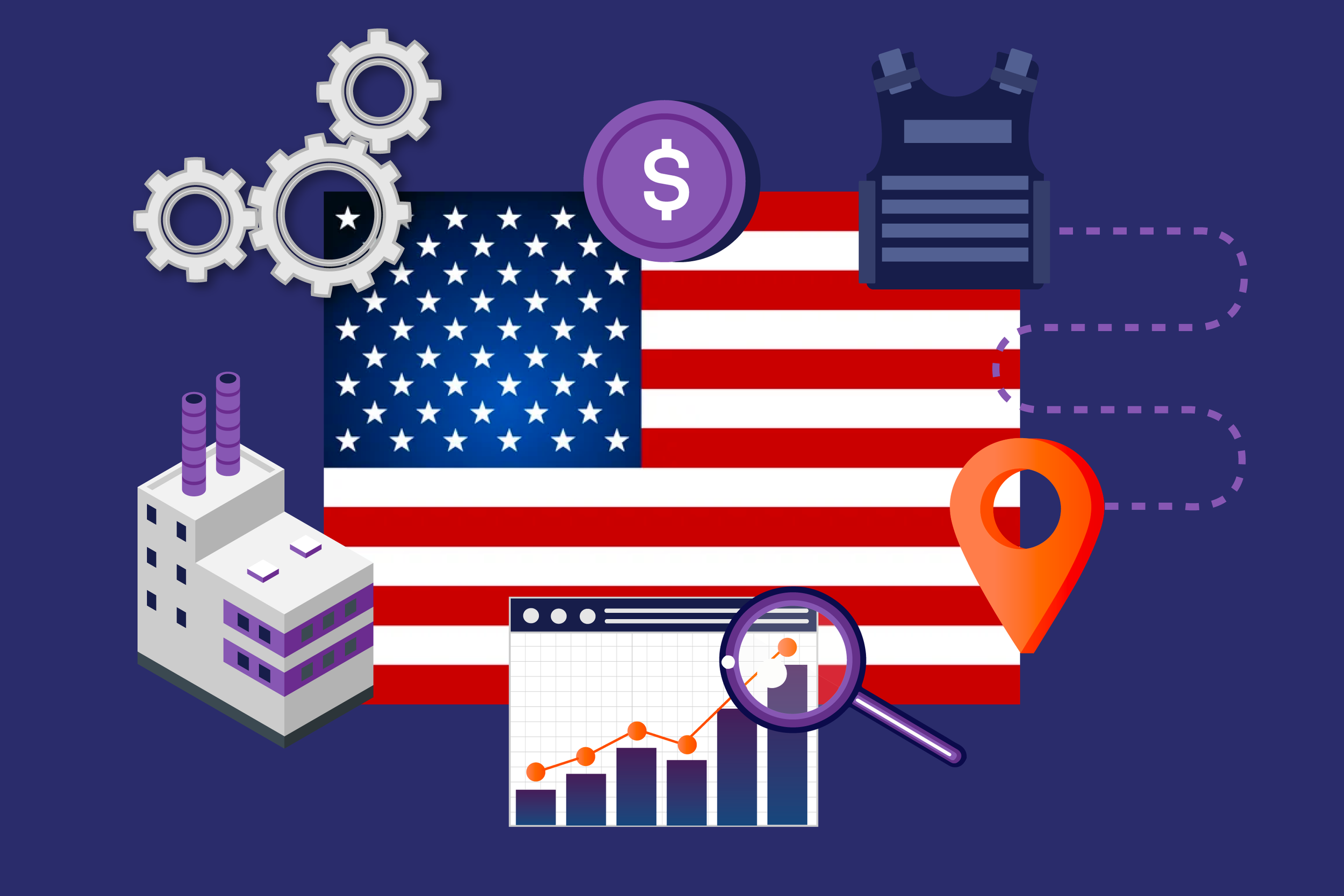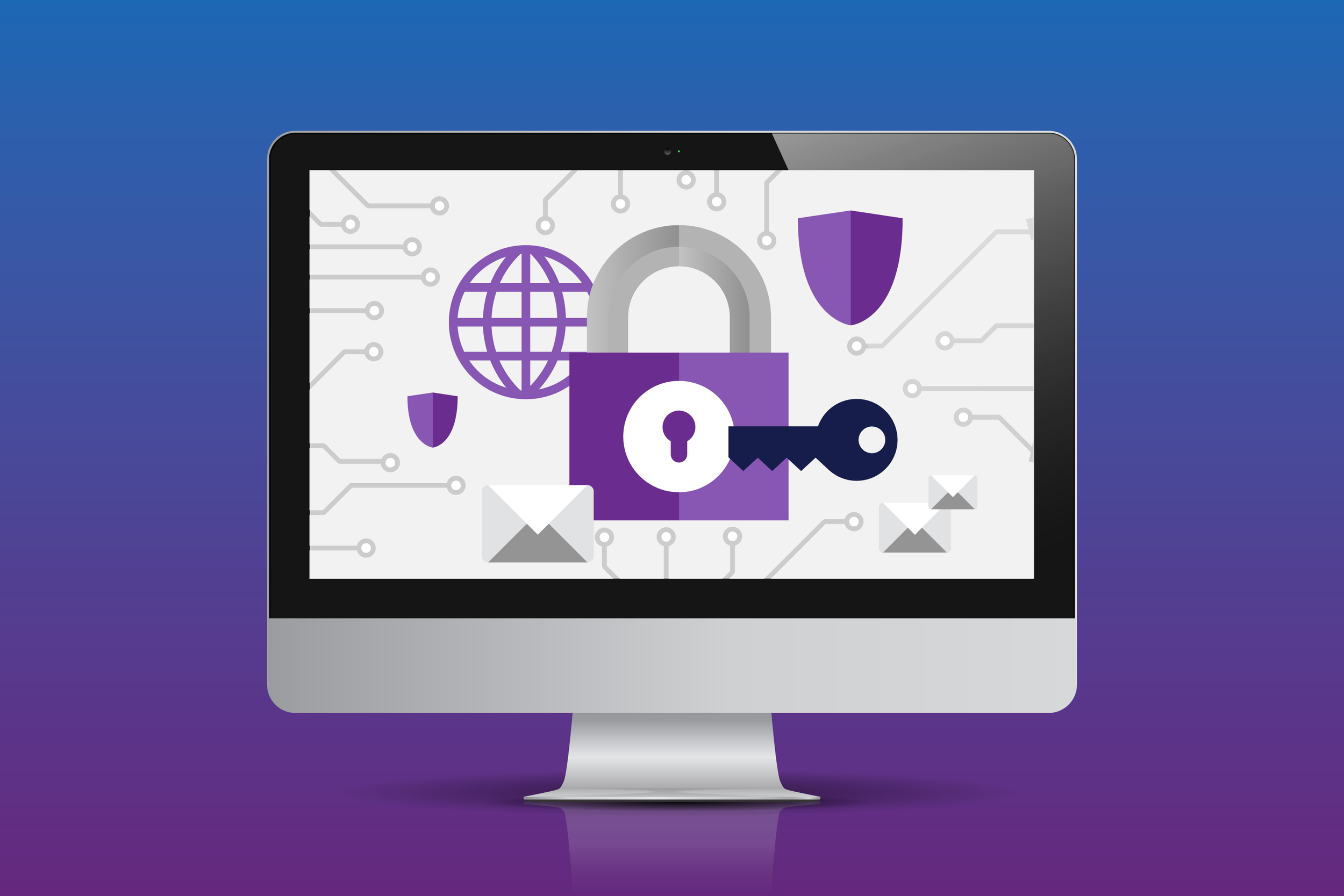The Backbone of Defense: How Global Supply Chains Keep Our Military Strong
As a defense contractor, your business is part of a complex and highly regulated industry that requires the procurement of a wide range of materials and components. The global supply chain offers many benefits for defense contractors, including access to a wider range of suppliers, reduced costs, and economies of scale.
In this article, we'll explore the different components of the global supply chain and how defense contractors can navigate the challenges and leverage the opportunities it presents.
Overview of the Global Supply Chain for Defense Contractors
The global supply chain for defense contractors involves a wide range of stakeholders, including suppliers of raw materials, manufacturers of components, logistics companies, and regulatory bodies. The procurement of materials and components is a critical part of the process, and it must comply with several regulations and requirements.
The global supply chain for defense contractors can be divided into three main components: upstream, midstream, and downstream. Upstream activities include the sourcing of raw materials and components, while midstream activities involve manufacturing, assembly, and logistics. Downstream activities involve the delivery of finished products to customers.
Benefits of a Global Supply Chain for Defense Contractors
The global supply chain offers several benefits for defense contractors, including:
Access to a wider range of suppliers: The global supply chain allows defense contractors to access a wider range of suppliers, reducing the risk of supply chain disruption and providing greater flexibility in sourcing materials and components.
Reduced costs: By leveraging economies of scale, defense contractors can reduce costs associated with sourcing materials and components, manufacturing products, and transporting them to customers.
Diversification: The global supply chain allows defense contractors to diversify their customer base and reduce the risk of relying on a single market or customer.
Enhanced quality control: The global supply chain provides defense contractors with access to a wider range of suppliers, which allows them to choose the best suppliers based on quality and price. This, in turn, can help to improve the overall quality of the products and services they provide to their customers.
Increased innovation: The global supply chain allows defense contractors to tap into the knowledge and expertise of suppliers and other stakeholders from around the world. This can help to drive innovation and creativity within the industry, leading to new and improved products and services.
Improved customer satisfaction: By leveraging the global supply chain, defense contractors can improve their ability to meet the demands of their customers, including shorter lead times, greater flexibility, and higher quality products and services. This can lead to improved customer satisfaction and increased customer loyalty.
As shown above, the global supply chain offers several benefits for defense contractors, including access to a wider range of suppliers, reduced costs, diversification, enhanced quality control, increased innovation, and improved customer satisfaction.
While there are also challenges associated with the global supply chain, defense contractors can navigate these challenges by developing strong relationships with suppliers, investing in technology and automation, understanding the regulatory landscape, ensuring supply chain resilience, implementing a continuous improvement program, and collaborating with other stakeholders in the supply chain. By doing so, defense contractors can position themselves for success in a complex and highly regulated industry.
Challenges of Global Supply Chain for Defense Contractors
While the global supply chain presents many opportunities for defense contractors, it also presents several challenges, including:
Complexity: The global supply chain involves many stakeholders, making it difficult to manage and ensure that everyone is working together effectively.
Risk management: The global supply chain is subject to a range of risks, including geopolitical instability, natural disasters, and cyber-attacks. Defense contractors must be able to anticipate and mitigate these risks to protect their supply chains and ensure business continuity.
Regulations and compliance: The global supply chain is subject to a wide range of regulations and requirements, including those related to sourcing, quality control, testing, and compliance. Defense contractors must be able to navigate these regulations to ensure that their products meet the standards required by their customers.
Enhanced quality control: The global supply chain provides defense contractors with access to a wider range of suppliers, which allows them to choose the best suppliers based on quality and price. This, in turn, can help to improve the overall quality of the products and services they provide to their customers.
Increased innovation: The global supply chain allows defense contractors to tap into the knowledge and expertise of suppliers and other stakeholders from around the world. This can help to drive innovation and creativity within the industry, leading to new and improved products and services.
Improved customer satisfaction: By leveraging the global supply chain, defense contractors can improve their ability to meet the demands of their customers, including shorter lead times, greater flexibility, and higher quality products and services. This can lead to improved customer satisfaction and increased customer loyalty.
Strategies for Navigating the Global Supply Chain
To navigate the challenges of the global supply chain, defense contractors can use several strategies, including:
Developing strong relationships with suppliers: Developing strong relationships with suppliers and other stakeholders can help to ensure that everyone is working together effectively and that issues can be addressed quickly and efficiently.
Investing in technology and automation: Investing in technology and automation can help to streamline the supply chain and reduce the risk of errors or delays. For example, the use of blockchain technology can help to improve transparency and traceability in the supply chain, while the use of artificial intelligence can help to optimize logistics and reduce costs.
Understanding the regulatory landscape: Defense contractors should have a strong understanding of the regulatory landscape and be able to navigate the regulations and requirements related to their industry.
Ensuring supply chain resilience: Defense contractors should have contingency plans in place to address any disruptions to the supply chain, including alternative sources of supply and backup manufacturing facilities. This can help to ensure that the supply chain remains resilient in the face of unexpected events.
Implementing a continuous improvement program: A continuous improvement program can help to identify areas for improvement within the supply chain, such as reducing lead times, improving quality control, and optimizing logistics. By continuously improving the supply chain, defense contractors can increase efficiency, reduce costs, and improve customer satisfaction.
Collaborating with other stakeholders: Collaborating with other stakeholders, including suppliers, logistics providers, and regulatory bodies, can help to streamline the supply chain and reduce the risk of disruption. For example, by working with logistics providers to optimize transportation routes, defense contractors can reduce transportation costs and improve delivery times.
The global supply chain presents many benefits and challenges for defense contractors. By leveraging the benefits, defense contractors can access a wider range of suppliers, reduce costs, diversify their customer base, improve quality control, increase innovation, and improve customer satisfaction. However, they must also navigate the challenges of managing the complexity of the supply chain, mitigating risks, and complying with regulations.
To navigate the global supply chain successfully, defense contractors should develop strong relationships with suppliers, invest in technology and automation, understand the regulatory landscape, ensure supply chain resilience, implement a continuous improvement program, and collaborate with other stakeholders in the supply chain. By doing so, they can position themselves for success in a complex and highly regulated industry.
In conclusion, the global supply chain offers both opportunities and challenges for defense contractors. By developing a robust supply chain strategy and staying up to date with the latest developments and technologies, defense contractors can create a sustainable competitive advantage and meet the demands of their customers in an ever-changing global marketplace.
Ready to conquer the global supply chain?
By partnering with IntelAlytic, defense contractors can transform the global supply chain from a liability to a strategic asset. Contact us today and discover how our comprehensive services can safeguard your operations, empower your decision-making, and ultimately, save lives.
Explore IntelAlytic Services
Follow us on LinkedIn for daily tips and resources




